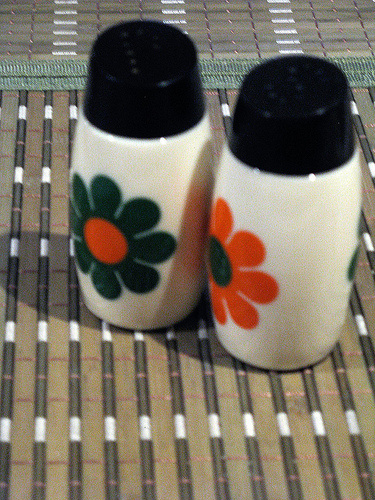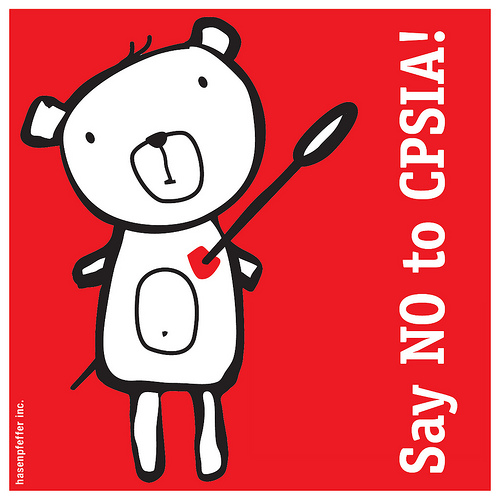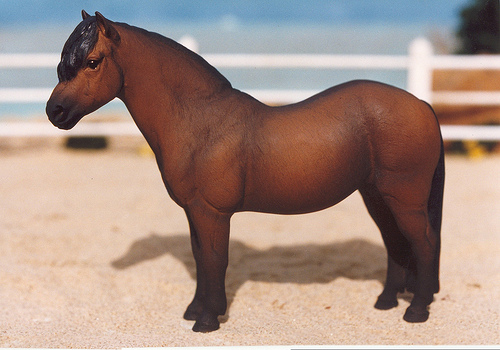Check out these china molds make maker images:
Vintage Milk Glass Salt and Pepper Shakers with Flower Power 70s Silkscreen

Image by GranniesKitchen
This set of vintage milk glass salt and pepper shakers are decorated with a green and orange flower power silkscreen.
The glass maker’s mark on the bottom indicate they were made by the Dominion Glass Company at their Wallaceburg factory in either January of February of 1977. The mould model number is 1632.
Spread the Word! – Save Jobs.

Image by Hasenpfeffer Incorporated
We make and sells dolls, teddy bears, and such. But this isn’t a plug for our business. As a reaction to the dangerous-toy scare last year, the Consumer Product Safety Commission created something called the Consumer Products Safety Improvement Act. It requires all manufacturers of children’s goods to submit their products for testing for lead and phthalates.
While that’s good in the overall scheme, it has some potentially damaging side effects. The problem is that the average testing fee runs a few thousand dollars. Making matters worse, we would have to submit each and every toy for testing since no two are alike (she makes her stuff from salvaged materials like old wool coats and such). Naturally you can see what this version of the act would do to the handmade toy and craft industry (it’s more than macramé owls nowadays).
There is a potential remedy, though. Below is the unabridged copy from the Handmade Handmade Toy Alliance. Below are links to a sample letter and to various legislators.
Save the USA from the CPSIA
In 2007, large toy manufacturers who outsource their production to China and other developing countries violated the public’s trust. They were selling toys with dangerously high lead content, toys with unsafe small part, toys with improperly secured and easily swallowed small magnets, and toys made from chemicals that made kids sick. Almost every problem toy in 2007 was made in China.
The United States Congress rightly recognized that the Consumer Products Safety Commission (CPSC) lacked the authority and staffing to prevent dangerous toys from being imported into the US. So it passed the Consumer Product Safety Improvement Act (CPSIA) in August, 2008. Among other things, the CPSIA bans lead and phthalates in toys, mandates third-party testing and certification for all toys and requires toy makers to permanently label each toy with a date and batch number.
All of these changes will be fairly easy for large, multinational toy manufacturers to comply with. Large manufacturers who make thousands of units of each toy have very little incremental cost to pay for testing and update their molds to include batch labels.
For small American, Canadian, and European toymakers, however, the costs of mandatroy testing will likely drive them out of business.
* A toymaker, for example, who makes wooden cars in his garage in Maine to supplement his income cannot afford the ,000 fee per toy that testing labs are charging to assure compliance with the CPSIA.
* A work at home mom in Minnesota who makes dolls to sell at craft fairs must choose either to violate the law or cease operations.
* A small toy retailer in Vermont who imports wooden toys from Europe, which has long had stringent toy safety standards, must now pay for testing on every toy they import.
* And even the handful of larger toy makers who still employ workers in the United States face increased costs to comply with the CPSIA, even though American-made toys had nothing to do with the toy safety problems of 2007.
The CPSIA simply forgot to exclude the class of toys that have earned and kept the public’s trust: Toys made in the US, Canada, and Europe. The result, unless the law is modified, is that handmade toys will no longer be legal in the US.
If this law had been applied to the food industry, every farmers market in the country would be forced to close while Kraft and Dole prospered.
How You can Help:
Please write to your United States Congress Person and Senator to request changes in the CPSIA to save handmade toys. Use our sample letter or write your own. You can find your Congress Person here and Senator here.
Thank you so much!
FOR SALE: Original North Light “Kitley Ladybird” – Dartmoor Pony mare

Image by appaIoosa
Model # P1133 – bay
Size: 5-3/4"H x 6-1/2"L
Original mold, produced by North Light.
Identifying marks & logos:
On belly: "KITLEY LADYBIRD "
On right buttock cheek: " © North Light 1986 "
Inside right hind leg: " Godfrey "
Inside left hind leg: " MADE IN UK
This is a model of the classic British breed, the Dartmoor. These ponies are hardy and well balanced, originating in Devon, England. This breed is closely related to the Exmoor Pony and probably descended from the same stock. These ponies roamed wild over the rugged moorlands of southwestern Devon for many centuries. Toward the end of the 19th century, the breed’s traits were stabilized by the creation of the Dartmoor Pony Breed Society, with standard requirements. The maximum height for this pony is 12.2 hands high at the withers. She is a well-balanced pony with small head, ears and eyes. The mane and tail are thick and full. The neck is wide, the chest deep and muscular and the shoulders are strong and sloping.
This North Light model is a lovely representative of a Dartmoor Pony from the North Light Native Pony Series.
|||****************************|||
North Light model horse figurines are made of a porcelain and resin composition, which allow for the extensive mold detailing (some with individual hair detailing, braided manes & tails, etc) that is very evident in the finish. The figurines are finished in a studio where they are airbrushed with the body color and shading required for the particular breed piece. Next comes the hand detailing , which can be extensive, depending on the horses’ color pattern. Pinto and appaloosa patterns require extensive hand work, and vary greatly from horse to horse. Facial features also receive hand detailing, with expressive, lifelike eyes which have a final gloss application to make them look moist and realistic. Touches of pink are added to muzzles. Nostrils are darkened inside to add depth.
With this degree of hand detailing, each model horse will vary slightly.
North Light is a company located in Stoke-On-Trent, Staffordshire, England. The area is famous for its potteries and figurines, including the well known Wedgwood, Beswick and Royal Doulton brands. In 2005, the North Light factory was sold – including all existing North Light molds – to the company: WADE CERAMICS LTD (yes, the same company that made those little whimsy figurines found in red rose tea boxes years ago). Wade repackaged the existing North Light horses under their new trademark and resold them within the Wade division as "North Light @ Wade" horses.
Directly from Wade Co. website, verbatim:
———————————–
Contributed by Carol Atrak
Monday, 18 July 2005
We have pleasure in announcing that Wade has purchased certain assets from Dennis Doyle of the North Light resin figurine range. North Light, which will trade as a division within Wade as "North Light @ Wade", is famous for its range of dogs, farm animals, horses and wildlife figurines. They are manufactured in resin and hand painted. The "Classic Dog and Horse Ranges" are finished in marble, china blue, bronze, Monet and other effects to grace the sideboards and coffee tables of the World’s finest homes.
Managing Director, Paul Farmer said, "North Light @ Wade" will bring a new dimension to Wade’s figurine capability and Wade’s mechanisms for online purchases of its ceramic products will be adapted to cater for North Light products too. We are also looking forward to improving our ceramic hand painting techniques which come with the North Light asset purchase."
Artists, Guy Pocock and Anne Godfrey, have been retained to continue modelling new lines and Clare Beswick, from that famous family of figurine makers which bears her name, has been appointed Sales and Product Manager for North Light @ Wade.
The manufacture has been moved from Biddulph to a separate resin area within Wade’s Royal Victoria Pottery in Burslem.
In 2008, Wade announced they would no longer produce the North Light @Wade horses (and dogs) at the factory (in the UK). Instead they decided to release a new line: "North Light @ Wade Premier Collection" (consisting of 17 horses and 22 dogs) – to be produced in China. Many of the existing NL horses you see being sold on eBay (and elsewhere) today, bear the "made in China" sticker, along with the NL backstamp.
In 2009, Wade ceased production altogether on all existing North Light models . Today, North Light horses are no longer being produced, sold or marketed by Wade Ceramics, making these horses highly sought after, valuable and rare.
I have no idea what the Wade Co. decided to do with all the existing North Light horses. Some say they sold the existing molds to a company in China.
If your North Light horse has the "©North Light Made in the UK" backstamp, you have a very rare & valuable collectible indeed!